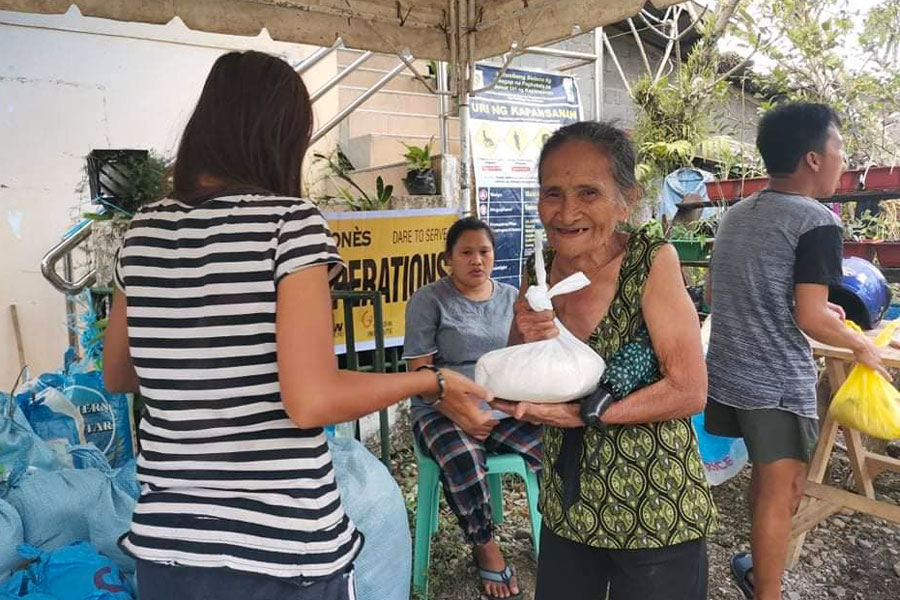Fellows Lead Relief Operations for Typhoon Odette Victims
By Andy Alegre, Global Fellow from the Philippines
With support from Goldin Institute board member Nathan Shapiro, I joined forces with Goldin Institute associate Susana Anayatin to deliver critical food and supplies to 482 families who were impacted by Typhoon Odette in the Philippines.

Leveraging our local contacts and connections with the Humanitarian Order of Sierra Falcones, Inc. (SF), Eastern Samar Chapter, we were able to distribute 482 relief packages filled with food, supplies, clothes and toys to targeted households affected by Typhoon Odette (International name, Rai) in Barangay Lunas, Maasin City, in Southern Leyte.
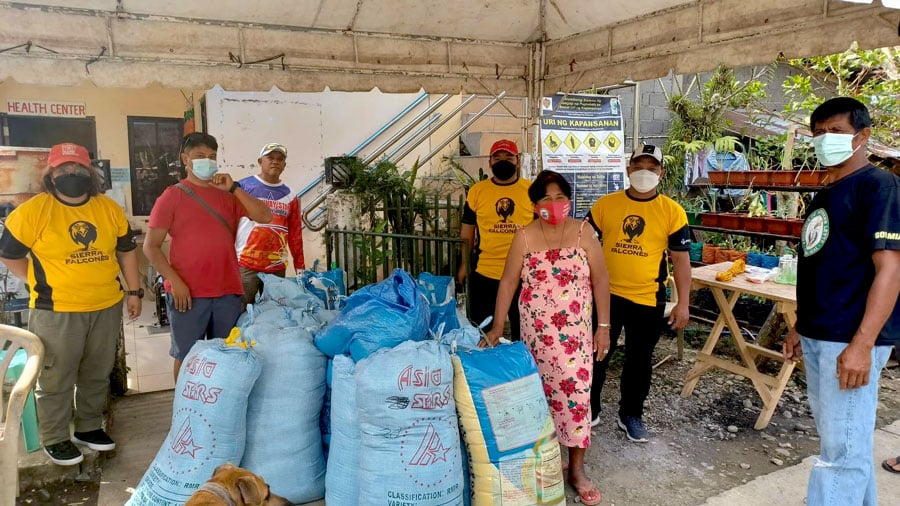
Barangay Lunas is a small community affected by Odette within the overall area of Maasin, which has a population of 87,446. The city is one of the hardest hit by the typhoon in the disaster-hit region in the Visayas with power yet to be restored and intermittent communication service.
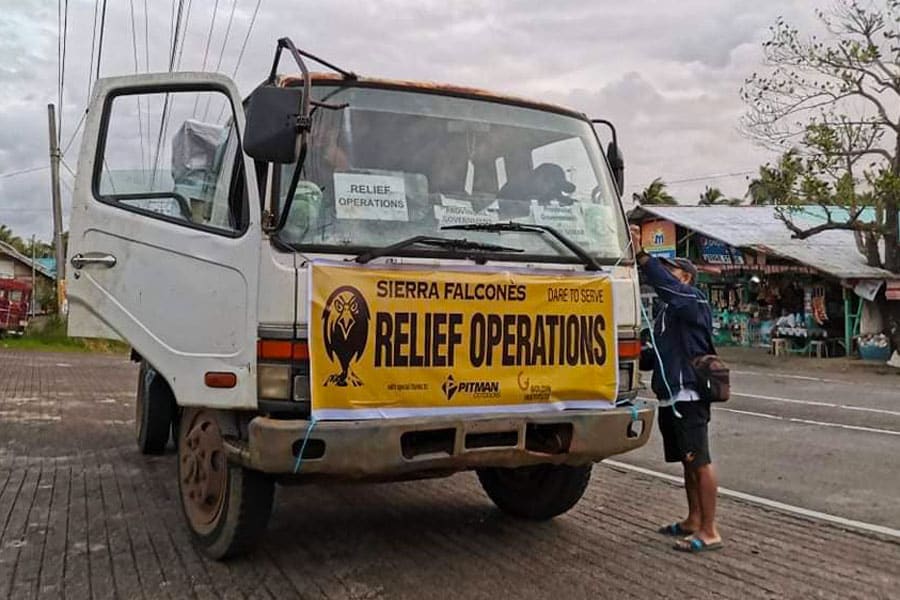
The SF members and volunteers were assisted by barangay officials in the distribution of relief supplies. The food and non-food items were prepared and repacked over a few days in Borongan City, Eastern Samar through the support and donation of various partners, organizations, individuals, and volunteers. These critical supplies were then loaded in a truck and sent to Maasin City. Coordination efforts were made by SF volunteer, Mr. Ariel Mendez of the Lunas Elementary School to the barangay council for the relief efforts.
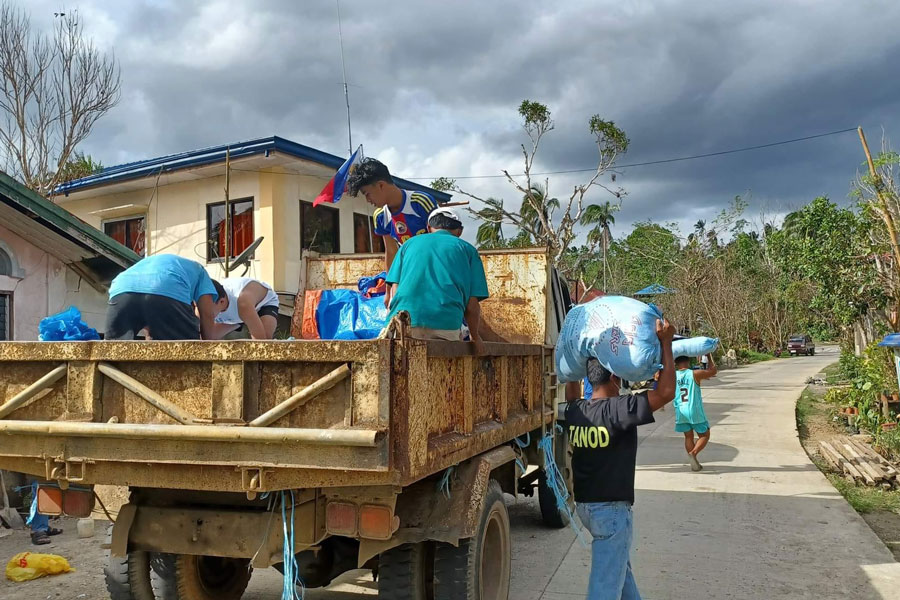
The area remains in need of support even though the Typhoon made landfall back on 16 December 2021. It brought torrential rains, violent winds, landslides, and storm surges. UN OCHA reported on December 30, that over 6.2 million people were affected across 10 regions. About 580,000 remain internally displaced with 356,000 people staying in evacuation centres while 227,000 people staying with host families or friends. The total death count is 397.
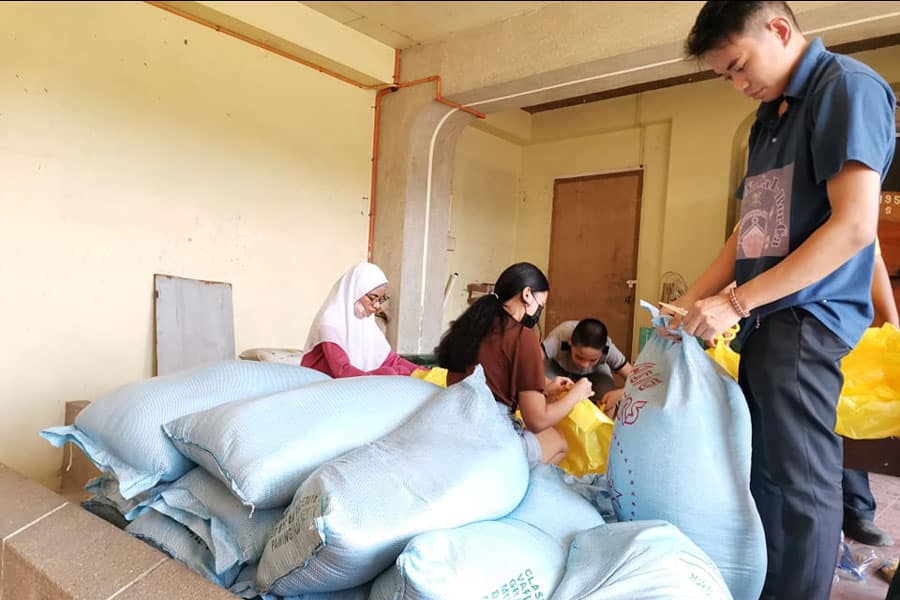
SF continues to plan and coordinate relief operations to different areas through its members and volunteers located in various chapters. Apart from the ongoing relief operations, SF strengthens its education programs through book drives, provision of education materials and radio-based instructions to remote communities at this time of pandemic.
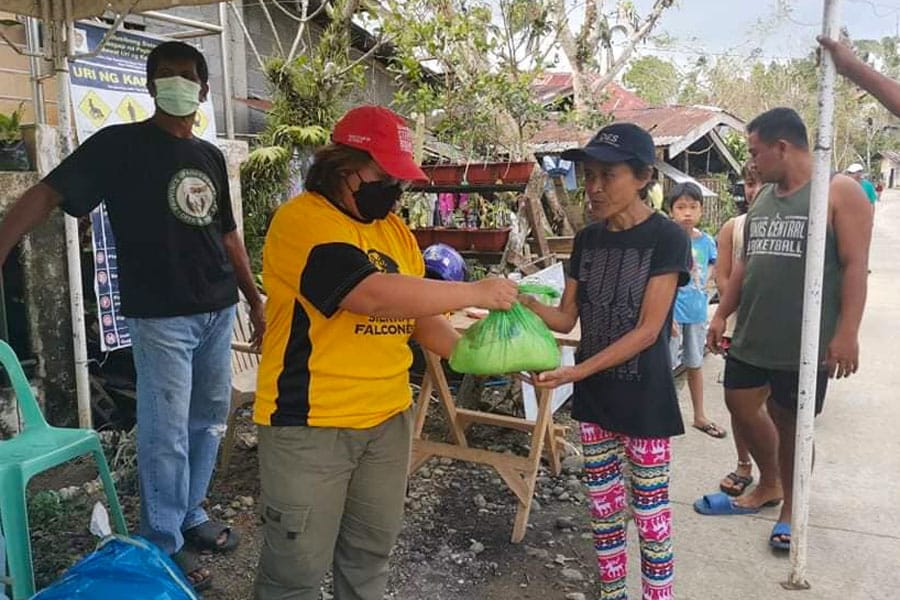
Again, thank you to the board and staff of the Goldin Institute, especially Nathan Shapiro, for standing with us in this time of crisis and rebuilding.
Spring 2014 Newsletter
Spring is making its way slowly toward the Goldin Institute's headquarters in Chicago. While seasonal change is in the air locally, systemic social change is underway at our global offices abroad. In this issue of the e-newsletter, we document the important work of our Global Associates. We are pleased to share these success stories from the field highlighting the positive, long-term changes underway, particularly in the Philippines and Colombia.
We invite you to take a look back at the first quarter of 2014 by viewing this short video overview of the newsletter.
Philippines
The Goldin Institute's efforts to provide access to clean water in the Philippines have continued to develop through the hard work of our Global Associate Dr. Susana Anayatin and her team. As part of her ongoing efforts, the team completed the installation of a 20 cubic meter water depository at J Marquez Elementary School located in the armed conflict area near Cotabato City on February 5, 2014. While conservative in size, its impact on the 1,875 students, 50 teachers and immediate community of about 1,000 families is immeasurable.
 Working in collaboration with school administrators, the military and community members, Dr. Anayatin deftly leveraged the unique strengths of each group to respond to the water needs of J. Marquez Elementary School. In the planning stages, Dr. Anayatin partnered with the residents and educational officials to cultivate community ownership and promote the water resource as an incentive for students to attend school. Considering the location of J Marquez Elementary School within the armed conflict area in Cotabato City, Dr. Anayatin also engaged in dialogue with all sides of the conflict, including the military, to utilize everyone's skills and resources. In a symbolic ceremony commemorating the installation, students participated in a water ceremony wherein they were sprinkled with water. Water scarcity has always caused the community to purchase water and use it sparingly. Viewed as a limited and expensive commodity, the students enjoyed the rare experience of using water for play and enjoyment.
Working in collaboration with school administrators, the military and community members, Dr. Anayatin deftly leveraged the unique strengths of each group to respond to the water needs of J. Marquez Elementary School. In the planning stages, Dr. Anayatin partnered with the residents and educational officials to cultivate community ownership and promote the water resource as an incentive for students to attend school. Considering the location of J Marquez Elementary School within the armed conflict area in Cotabato City, Dr. Anayatin also engaged in dialogue with all sides of the conflict, including the military, to utilize everyone's skills and resources. In a symbolic ceremony commemorating the installation, students participated in a water ceremony wherein they were sprinkled with water. Water scarcity has always caused the community to purchase water and use it sparingly. Viewed as a limited and expensive commodity, the students enjoyed the rare experience of using water for play and enjoyment.
 Amidst the work to provide access to safe drinking water, a storm surge hit Dr. Anayatin’s home province of Maguindanao on January 18th and 19th. Responding to this local emergency, the Goldin Institute Philippines organized a relief operation known as Alay Pagamamahal, which translates to Love Offering. Within days after the storm, Dr. Anayatin and her team coordinated meal distribution, provided counseling and activities to children, clothing and other supplies for immediate relief. While the team utilized funds from an anonymous Goldin Institute donor, they also worked closely with local parishes, churches, regional government and the military to coordinate the distribution of scarce supplies. Currently, three months later, the team continues to restore what was lost by the powerful storm.
Amidst the work to provide access to safe drinking water, a storm surge hit Dr. Anayatin’s home province of Maguindanao on January 18th and 19th. Responding to this local emergency, the Goldin Institute Philippines organized a relief operation known as Alay Pagamamahal, which translates to Love Offering. Within days after the storm, Dr. Anayatin and her team coordinated meal distribution, provided counseling and activities to children, clothing and other supplies for immediate relief. While the team utilized funds from an anonymous Goldin Institute donor, they also worked closely with local parishes, churches, regional government and the military to coordinate the distribution of scarce supplies. Currently, three months later, the team continues to restore what was lost by the powerful storm.
Colombia
In Colombia, where ongoing civil conflict is a part of life, the Goldin Institute’s Global Associate, Lissette Mateus Roa and her team are working to create a peaceful coexistence between community members by leveraging Colombia's vast education system. Governmental changes every four years brings with it new educational priorities that public schools often struggle to adopt. Teachers and administrators drop current initiatives and quickly shift focus, resulting in a disjointed educational curriculum. These professional issues are often further complicated by the stress of working in a conflict zone. Struggling to deal with the personal and professional challenges, teachers and administrators often have conflict-laced interactions with each other and students. Observing the weak educational opportunities provided to students and the stark need for child soldier reintegration, Lissette developed a pilot project to help use curriculum and counseling to turn schools into centers for reintegration. The Pedagogy of Care and Reconciliation (PCR) project is currently running in three schools in Colombia in addition to ones in Mexico, Peru and the Dominican Republic.
The project utilizes the ESPERE methodology which focuses on forgiveness and reconciliation. Teachers participate in a 6-day workshop where 3 days are dedicated to forgiveness and 3 days are dedicated to reconciliation. Following the workshop, teachers engage in dialogue sessions for 6 months; discussing topics such as school rules, priorities in student education, current problems and alternative student punishments. The dialogue portion in particular provides a rare opportunity for teachers to voice their concerns and be heard. As changes are made at the top, the positive effects of peaceful coexistence and alternative solutions are visible at the bottom as evidenced in a recent encounter in the Dominican Republic. An older student in the Dominican Republic was bounced around to several schools; known as a troublemaker, his reputation preceded him, resulting in teachers unwilling to welcome him into their classroom. After getting to a school utilizing the ESPERE methodology, a teacher asked him to repay his past misdeeds by teaching primary school students. Teaching younger students as an alternative to going to the principal’s office brought out his compassion and self-control, which had not surfaced before.
Looking Forward
As the ESPERE methodology proves successful in the field sites, Lissette is preparing to extend the school-based training to our partners in Uganda this May, 2014. The team in Gulu is excited to adapt this model to work with former child soldiers and the community as they grapple with forgiveness and reconciliation.
Keep an eye out for more information about this project in the next newsletter.
Also watch the next e-newsletter for the latest news from the Grassroots Leadership Development project. The team is hard at work with our colleague Bliss Browne of Imagine Chicago to develop a course that will inform and inspire grassroots activists in leading community-driven initiatives worldwide.
If you have suggestions of individuals who may want to receive this e-newsletter or stories you think we should tell, please contact us at news@goldininstitute.org.
